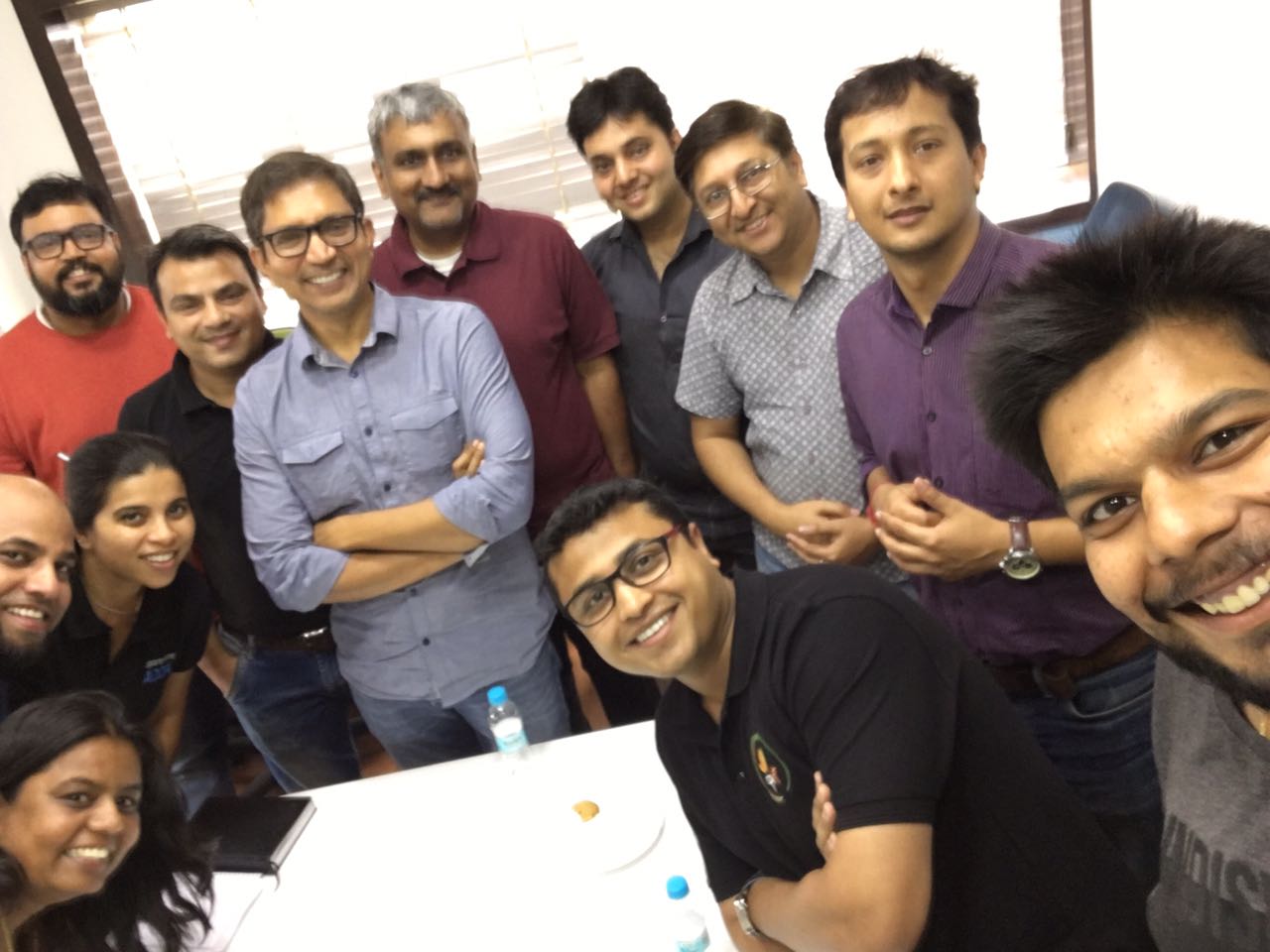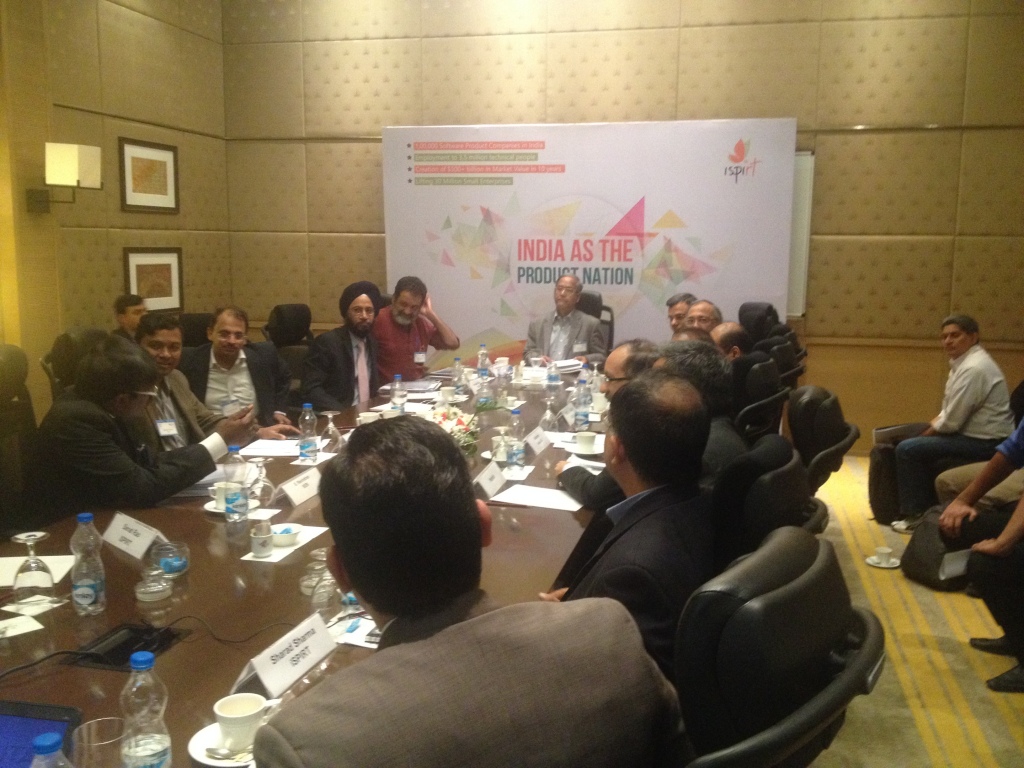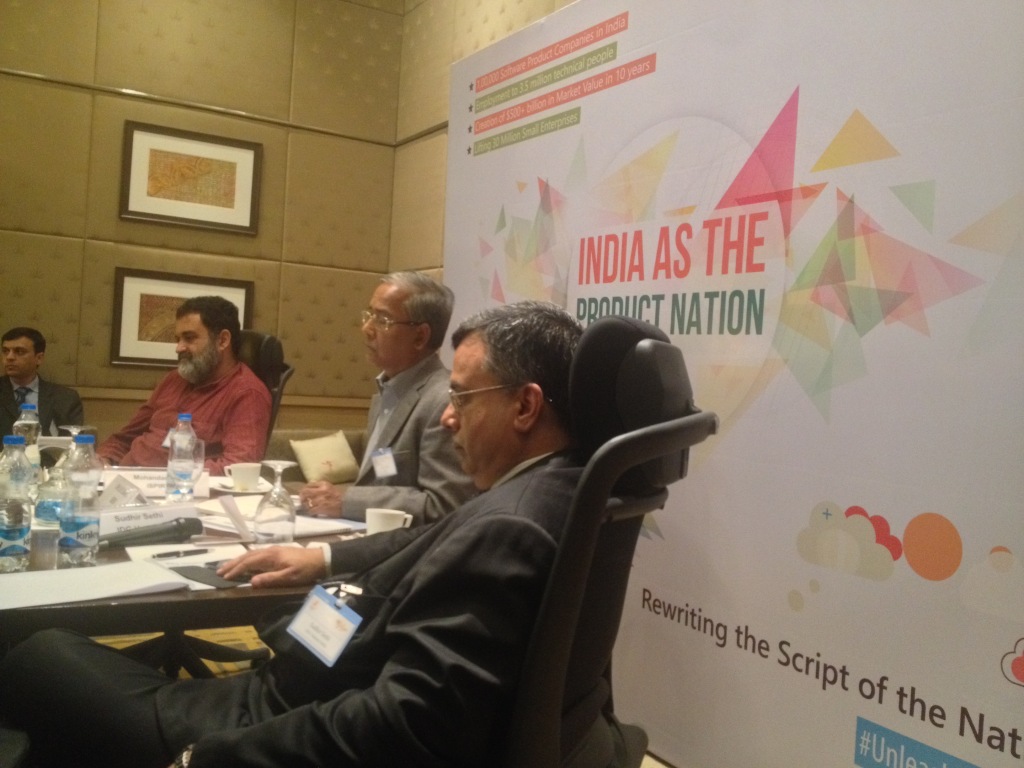If I were a Cobbler it would be my pride..

If I were a Cobbler it would be my pride..

Setting up a new business venture is driven by passion, determination, intimidation and is a lot of fun. The idea of getting your solution to the market is so thrilling that it almost matches the excitement of sighting your first crush in college! Unfortunately, sometimes the market isn’t ready yet, and convincing consumers of the value proposition can dry you up.
But if you believe you are ‘solving a problem’, you must wait for the market to align. Sticking to your guns will keep you focused and will prove to be beneficial in the long run. As market dynamics begin to fall into place and the problem becomes self-evident, the same solution starts to look more relevant, picking up business and scale.
It’s highly likely that there exists a market somewhere else, that is feeling the pain you are trying to solve. And when it comes to technology products per say, the internet has flattened the world so much, that reaching remote of markets is just couple of pixels away. Keep hustling!
To set the context right, Hotelogix identified a basic problem in the industry that it could solve. Imagine, If you book a room online(read it as ‘product’) on any travel portal (read it as a ‘store’), there is still no guarantee that you will get that the room, when you reach the hotel. Isn’t this a fundamental issue? Isn’t the customer buying a product, entitled to get the product he paid for? and without any hassle? Now, when comes to smaller hotels, this problem is encountered on a regular basis. What’s more, it is a problem that exists globally. This is what we set out to solve…
When Hotelogix launched its product in 2010, the budget hotel segment in Asia was still a growing sector. However, USA seemed to be a ready market. In USA, when it comes to customer satisfaction – they will go the extra mile to ensure good experience. We entered the market there, and hoteliers loved the product. When we started, we knew India was not a ready market. And in any case, Vertical SaaS market here is not as big. As budget accommodation began to escalate in popularity across South-East Asia, Africa & South America, Hotelogix continued to spread its presence. Today, we have hotels in over 100 countries using our services! We had been resilient through all these years and always kept ourselves going – seeking out the right way to scale.
In the last couple of years, ‘Budget Accommodations’ have witnessed increased popularity in India, South-East Asia and globally as well. The sudden focus on this segment has made all the solutions addressing this sector appear more relevant. Hotelogix – always focused on the small and mid-segment hospitality businesses – began to gain lot more traction and with its years of experience in the international market, we are now easily the most mature solution out there available.
So what’s different? Has Hotelogix suddenly changed? Or have these budget hotels changed? Neither, I should say. Only the market forces have changed. Consumer demands have shifted, and budget hotel brands are now in the news & social media, albeit not always for the right reasons!
In essence, market dynamics have been growing in our favor, and it is time now for some action. Becoming a market leader here, seems to be in our line of sight now, but It’s taken us 6 years to see the light at the end of the tunnel!
The fire that ‘Oyo rooms’ started in India, has changed the face of budget accommodations. Multiple businesses have formed around the same model and more importantly, the budget hotel industry has gained prominence. Existing hotel groups that were running on outdated legacy technology have now woken up and are reassessing their strategy. There are several businesses in Thailand, Indonesia, Malaysia, Philippines and so on, operating on a model similar to ‘Oyo Rooms’. They are mushrooming and now beginning to observe us. The budget hotel industry is going through a similar transition on a global basis, a transition that is redefining the experience and cost of booking travel accommodation.
So whats the learning? We had strong belief in the problem we were solving – that’s what kept us going. We are glad to now finally have the opportunity to serve our own country. Before 2015, India accounted for barely 7% of our revenue. Now, this figure is upwards of 17%.
We’ve all heard the phrase, ‘when the going gets tough, the tough get going’. This is of primary importance and is related to the resilience. But it’s equally important to remember that ‘when the going is good, the good ones run as fast as they can’. This is where I think focus is really important and getting a firm grip on your position in this entire ecosystem is the key. This is also when you can maximize the true value of investor money. This is when you should invest on multiplying! These spurts happen when companies shift from one stage to the other, and it is important that entrepreneurs show aggression at the right time. Very interestingly, I find that most good entrepreneurs practice some form of meditation or the other. This prevents them from getting burnt out and helps them identify the opportunity when it comes knocking. Meditation to me, is anything that can keep your mind away from your regular routine. It could be regular evenings with people who do not remind you of your work day, or it could be any hobby – like music, running and so on. For me, it has been a mix of a few things. Mandatory weekends with friends; my first love – ‘Table Tennis’; my second love, ‘Ballroom Dancing’; my third love… I could go on and on but I’ll stop here before I end up divorced!
So my friends, timing is very key to your business and if you believe in the problem you are solving, just be on the hunt for the right timing in the right markets!
My next article will be on the relationship between my sports life, entrepreneurship and professional life. And yes, you may have guessed right – I was a state level ‘Table Tennis’ player!
How often has this happened? An entire team from Securities and Exchange Board of India (SEBI) with its Chairman Mr. U.K. Sinha meeting with Software Product startups in Bangalore to understand their challenges and also provide useful advice by participating in interactive sessions for more than 5 hours.
On 19th December, Mr. U.K. Sinha, Chairman of SEBI and his management team, heard the stories of 8 Indian software product startups. The idea was to understand both the Capital Markets Challenges (like raising capital from FIIs, listing for IPOs, and other book building challenges) as well new developing landscape of Consumer Market Challenges (like changing landscape of payments, pre-payments, recurring payments, etc.)
Mr. U.K. Sinha, was very forthcoming with his admission that new age companies require a completely new paradigm of evaluation and approvals. The new paradigm is needed not just for listing purposes, but also for market regulation and growth purposes. He assured full commitment from SEBI’s end to the budding entrepreneurs that SEBI is very keen, and will do everything within its capacity to help develop the markets keeping in mind INDIA’s growth needs.
More than 90 minutes of conversation and showcasing of New Software Product Startups from Bangalore took place. Mohandas Pai chaired the sessions on iSPIRT’s side. Not all elements of the sessions can be reproduced here; below are some of the key highlights.

About 8 Indian Startups which started in INDIA, and which have global operations today, presented their stories not just from a valuation and growth standpoint, but from an emotional and proud-to-be an Indian startup viewpoint. To sum it up, almost every story was about Entrepreneurs who dared to dream something not only for them, but for INDIA, and today want the Indian System (Regulators, Government and Institutions) to reciprocate to their needs. They highlighted their list of issues which include the following:
At the end of this open session, Shekhar Kirani (iSPIRT Fellow; Accel) highlighted the fact that the Indian software product markets were entering an era of hyper growth. It is a new paradigm where not just startups, but all Institutional bodies within India, need to now collaborate and commit, for supporting each other’s need. In this context, he appreciated the interest shown by SEBI.
Following this open session, the visiting SEBI team met with iSPIRT’s “List in India” Policy Expert Team for an intense three hour closed door conversation about specific issues and their resolution. This iSPIRT Policy Expert Team is led by Sudhir Sethi of IDG and has Rajiv Khaitan (Khaitan & Co.), Sanjay Khan (Khaitan & Co.), R Natarajan (Helion), Rajesh Ghonasgi (Quick Heal CFO), Manish Dugar (InMobi CFO) and Harish HV (Grant Thornton) as its members. While specific details of this meeting are not available, Mohandas Pai told me that the session had been very productive.
Mr. U.K Sinha, Chairman of SEBI, has an unbeatable track-record. In his past life, he was the chairman of UTI, and was instrumental in transforming UTI from a 1.2k crore institution to 12k crore institution. Many insights were shared by Mr. Sinha with all the participating Startup Entrepreneurs. Some of the key ones are:

I saw a collaborative approach to problem solving that I haven’t seen before. iSPIRT’s policy approach is refreshing different from the traditional lobbying mindset that one sees in trade bodies. And SEBI is clearly open to listening and learning. It was amazing to see how SEBI as a regulator and iSPIRT as a think tank were both focused on the same national goal. I came away from the meeting with optimism and a spring in my step.